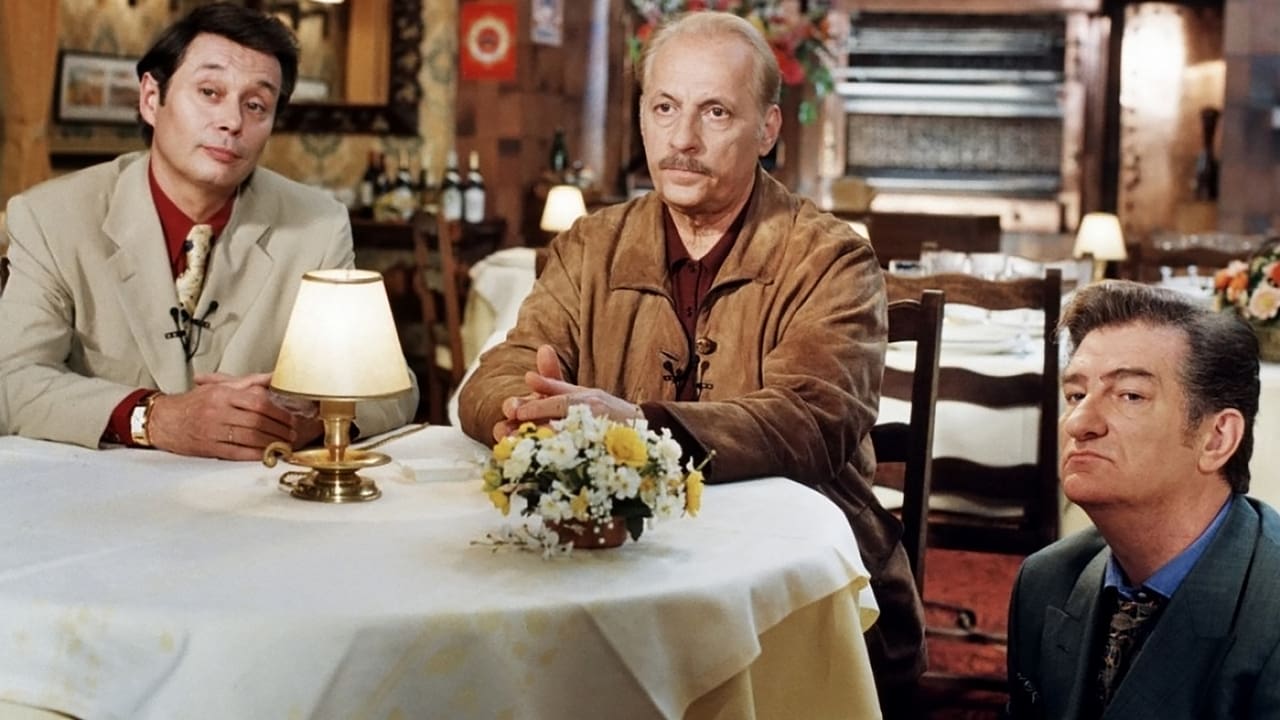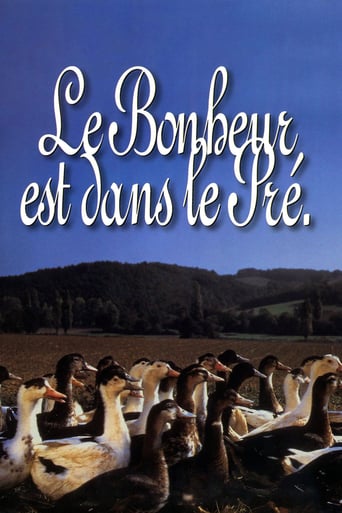

Amateur movie with Big budget
... View Morean ambitious but ultimately ineffective debut endeavor.
... View MoreStrong acting helps the film overcome an uncertain premise and create characters that hold our attention absolutely.
... View MoreIt's simply great fun, a winsome film and an occasionally over-the-top luxury fantasy that never flags.
... View MoreEverything goes awry in the life of Francis Bergeade: his firm is in strike, his wife Nicole despises him and he has a heart failure. All these reasons incite him, helped by his best friend Gérard to take Michel's place who disappeared twenty six years ago and who is demanded by his family. Thus, he arrives in the life of Dolores who breeds ducks in the south of France with her two daughters. He has made the good choice because it enables him to start a new life again, a more peaceful one...What the very overrated "Amélie Poulain" (2001) tried to reach, "happiness is in the field" (1995) achieved it: to make the spectator happy. Then, hats off to the director Etienne Chatiliez. It is all the more surprising as his third feature film very clearly stands out from the two previous ones. Indeed, there's no mark of social satire like in "life is a long quiet river" (1988) while the malicious humor that dominated "Tatie Danielle" (1990) is here largely absent. Instead, we can understand the movie as a quest for pleasure and welfare and especially the adventures that happen to Francis are positive and only aim at making him happy. Once he will arrive in Dolores' farm, he will find two main things: happiness and affection. Concerning the end of the film, I think it strongly contrasts with the end of Chatiliez's two previous movies which presented the disintegration of two universes (the Le Quesnoy's one and Jean's one) whereas here, the movie ends on an image depicting Francis' new family looking happy and united in front of the farm, at dusk with Gérard repeating to his best friend: "enjoy my pal, enjoy..." In a screenplay playing on the contrast (one of Chatiliez's best weapons), Florence Quentin the scriptwriter, also kept place to ridicule proud people, the more often through blunt dialogs (Francis' family, especially his wife are the perfect quarries to satisfy the scriptwriter's needs).As for the actors, they act their respective roles with an exhilarating pleasure. They take advantage of irresistible dialogs and really great situations. The tandem Serrault/Mitchell shines and their friendship impresses. We have rarely seen such a strong relationship in the history of French cinema. The second one offers an amazing composition as a devoted, vulgar and macho friend. Eddy Mitchell is famous in France as a singer but in Chatiliez's movie, he showed the full extent of his talent as an actor. We can also thank the director for having hired Sabine Azéma, very funny in her role of uptight middle-class person.However, there's one thing I don't understand: what was Chatiliez thinking of when he decided to bring Eric Cantona to the cast? I've got only one sentence to tell my opinion about him: he can't act and it is better to see him play with a ball.Fortunately, it is a comparatively minor fault which doesn't spoil the summary I give about this flick: a heart-warming movie which presents itself as a reliable lesson about joy of living. How great it would be if we could prolong our stay in Dolores' farm surrounded by splendid landscapes bathing in the sunlight!
... View MoreA gentle and relaxing film full of subtlety and humour throughout. The story may be universal but is the French take on life that permeates the film and makes it appealing. Well worth the rental fee for anyone who wants a rest from the brashness of Hollywood.
... View MoreThe most delightful daydream has always been the one in which you're put into an environment completely different from the one you know, and you become much happier as a result. In the cinema, this has resulted in some classics: A Yankee in King Arthur's Court comes to mind, or Chatiliez's first film, La vie est une longue fleuve tranquille, which hangs on two babies being switched at birth, and the families find out about it many years later.This picture has the great Michel Serrault playing the lead, a frustrated businessman who is mistaken for a man who disappeared many years before, and who is tracked down via a TV show that specializes in this sort of squirm-inducing hokum. He's only too glad to abandon the snobby, sarcastic wife (Sabine Azema) he's spent miserable years with, to go live with Carmen Maura in the sun of Provence. There is the sense that the dream cannot go on forever, but you enjoy how the story plays out.
... View MoreIf you like good, intelligent comedy(something completely different from American empty-headed comedies) this picture is perfect for you. It has interesting and witty dialogues, bright atmosphere and great performances by Michel Serrault(Francis),Eddy Mitchell(Gerard) and specially Sabine Azema who is excellent and hilarious as Francis' wife Nicole.Everytime she appeared I would immediately start to giggle.Rent this one you won't regret.After seeing it you'll feel much better, that's for sure.
... View More